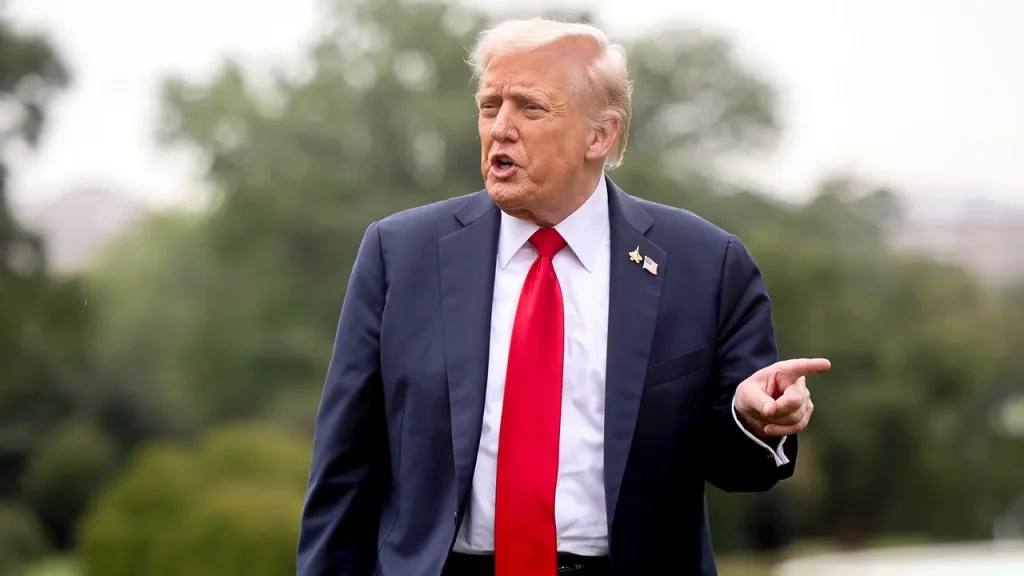Trump’s Academic Compact Meets Resistance from America’s Top Universities
In a significant development for higher education policy, the Trump administration’s proposed “Compact for Academic Excellence in Education” has been met with widespread rejection from the nation’s leading universities. The initiative, which would tie federal funding preferences to universities’ adherence to specific principles around admissions, free speech, and institutional governance, was sent to nine prestigious institutions on October 1st with a request for feedback by mid-October. Of these universities, seven have explicitly declined to sign the compact, while two others have provided feedback without committing either way.
The compact’s core principles reflect many of the educational priorities that have defined conservative approaches to higher education reform. These include merit-based admissions without consideration of race or other demographic factors, commitments to ideological diversity and freedom of expression, elimination of institutional units seen as hostile to conservative viewpoints, recognition of biological sex for athletics and facilities, institutional political neutrality, financial responsibility, and certain restrictions on foreign student admissions. Education Secretary Linda McMahon positioned the compact as a voluntary framework that would nonetheless carry significant implications for federal research funding priorities for institutions that chose to participate.
University leaders who rejected the compact expressed concerns that despite sharing some of the same broad values, the agreement would fundamentally compromise institutional autonomy and academic freedom. Brown University President Christina Paxson wrote that the compact “would restrict academic freedom and undermine the autonomy of Brown’s governance.” MIT President Sally Kornbluth noted that the institution already meets or exceeds many of the standards outlined in the document, but emphasized that MIT “freely chooses these values because they’re right,” not because of external pressure. Similarly, the University of Southern California acknowledged alignment with some principles but worried that “tying research benefits to it would, over time, undermine the same values of free inquiry and academic excellence that the Compact seeks to promote.”
Perhaps most notably, multiple institutions expressed particular concern about the implications for America’s research leadership and integrity. The University of Virginia’s interim president, Paul Mahoney, warned that “a contractual arrangement predicating assessment on anything other than merit will undermine the integrity of vital, sometimes lifesaving, research.” University of Arizona President Suresh Garimella echoed this sentiment, writing that “a federal research funding system based on anything other than merit would weaken the world’s preeminent engine for innovation.” Dartmouth’s response emphasized that universities “have a responsibility to set our own academic and institutional policies” and that governmental involvement through such compacts—regardless of which political party is in power—is not “the right way to focus America’s leading colleges and universities on their teaching and research mission.”
The responses from Vanderbilt University and the University of Texas at Austin differed somewhat from the outright rejections. Vanderbilt President Daniel Diermeier characterized the administration’s outreach as a request for feedback rather than a demand for acceptance or rejection, and expressed a willingness to continue dialogue. Kevin Eltife, chairman of the UT System Board of Regents, said the university was “honored” to be consulted and looked forward to reviewing the compact, though no formal position has been announced by the institution.
The widespread rejection of the compact highlights the ongoing tension between federal policy objectives and the tradition of institutional autonomy in American higher education. While many university leaders acknowledged sharing some of the values expressed in the document—particularly around merit, free inquiry, and academic excellence—they fundamentally rejected the approach of tying these values to preferential funding arrangements. The universities’ responses collectively articulate a vision of American higher education that values independence from political influence while remaining accountable to broader societal needs. As debates about the future of higher education continue, this episode illustrates the challenges of reconciling competing visions for how universities should operate in relation to government priorities and funding.


